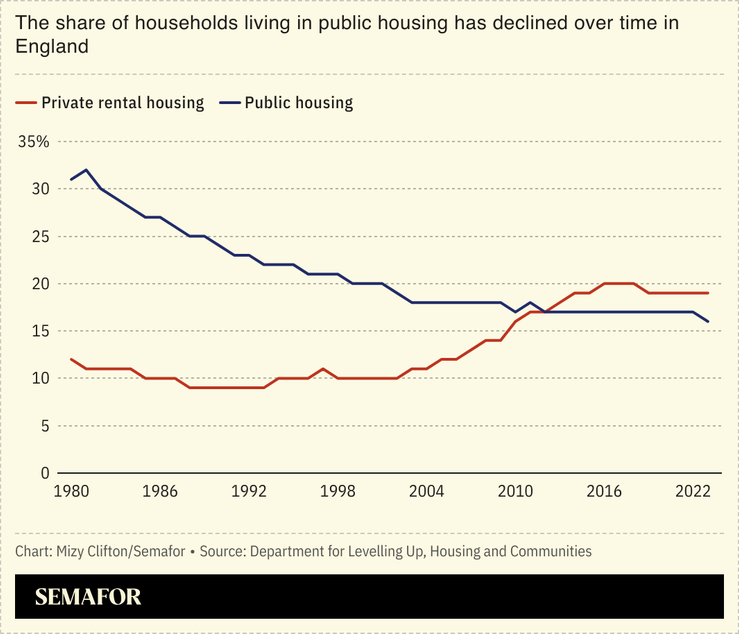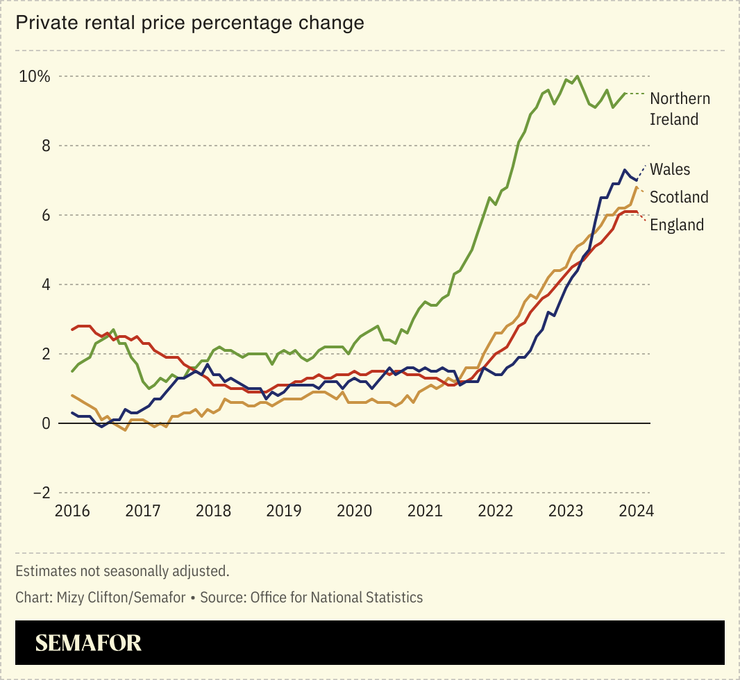The News
British Prime Minister Keir Starmer said the newly elected Labour government will “take the brakes off” the British economy by focusing on planning reform and mandatory housing targets. The government outlined its policy proposals to Parliament on Wednesday.
As part of a package of 40 bills set out in the King’s Speech, an archaic formality of British politics that sees the monarch lay out the legislative agenda for the foreseeable future, Starmer’s government promised to “accelerate” housebuilding across the country and new protections for renters, including ending no-fault evictions.
SIGNALS
Planning reform may not be enough on its own
Reforms to speed up new building and infrastructure projects are welcome, but “not the panacea” to solve all the UK’s problems in this area, given the housing market downturn, rising material costs, and skills shortages, the Institute for Government argued. Other measures — such as expanding training for construction workers, building inspectors, and planners — will be needed before new projects can get off the ground without derailing other goals, like controlling inflation and achieving net zero, urban planning experts argued in The Conversation. The government’s focus on reducing local councils’ power to block housing and infrastructure projects may also be misdiagnosing the problem: Aside from NIMBYists, EU-era environmental legislation also may stand in the way, a columnist argued in right-leaning outlet The Spectator.
Labour’s focus on home ownership may sidestep bigger problems

If the government is serious about getting young people onto the property ladder, it should focus on building truly affordable social housing rather than private homes, UK newspaper the i’s housing correspondent argued. That might require ending the Margaret Thatcher-era Right to Buy program, a step Labour has so far rejected, but as one senior party official described, the policy functions like “trying to run a bath with the plug out” because sold-off stock is rarely replenished, The Big Issue noted. But Britain’s “obsession” with home ownership as a status symbol and means of wealth generation may also be part of the problem, ITV News’ Robert Peston said on The Rest is Money podcast.
What Britain could learn from other countries

Britain may need to pursue more “radical” reforms based on success stories abroad, a columnist wrote in PoliticsHome. In Vienna, which topped The Economist’s 2024 Global Liveability Index, 60% of people live in Gemeindebauten, or “communal buildings” owned by the city. There, social housing is a “foundational ideal” rather than simply policy, and although problems remain — residents complain over repair bottlenecks, and those who stay in private rentals face similar challenges to elsewhere in Europe — that vision has “stood the test of time,” The Guardian noted.



